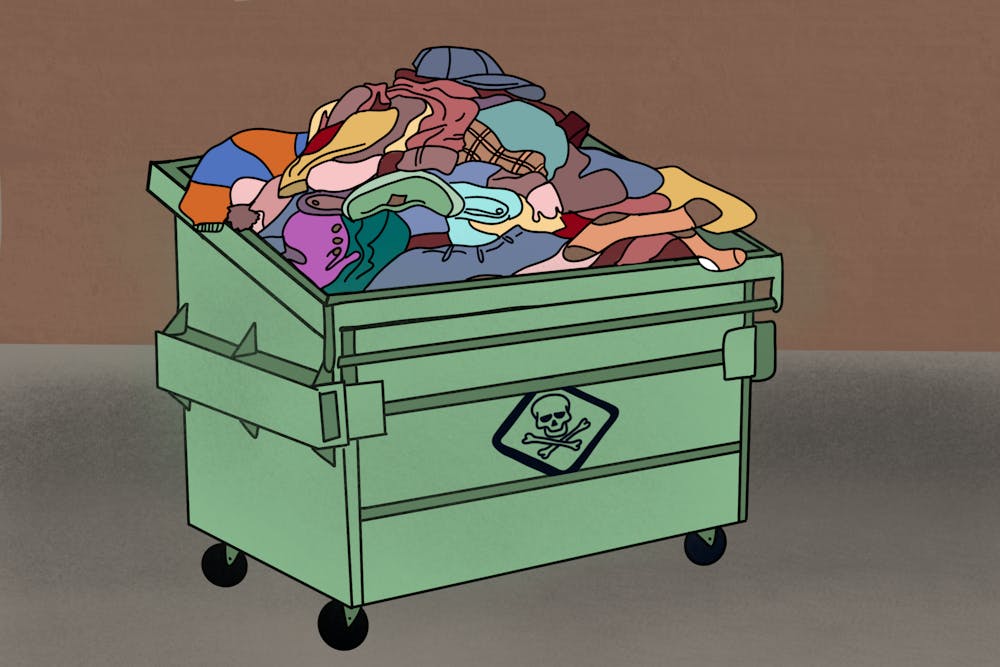With the recent increase in fashion trends, college students have been consuming more clothes than ever. Consumers should try to prevent the increase in fast fashion consumption in order to try to avoid environmental damages and worker mistreatment. To do this, consumers should be more conscious about where they buy clothes.
Fast fashion can be understood as clothing that is manufactured quickly in response to rapidly changing trends.
This ever-growing industry has caused significant environmental and social harm around the globe. According to the Princeton University Student Climate Initiative, it takes 3,000 liters of water to produce one shirt and about 20% of worldwide wastewater is due to the fashion industry.
If clothing production continues to rise due to fast fashion, then these numbers can be expected to rise with it, and cause even more harm to our environment.
Even though the industry creates jobs, workers in fashion manufacturing can be severely underpaid and mistreated.
According to a report by Global Labor Justice, workers at GAP suppliers in Southeast Asia face low minimum wages and temporary work. Because of the constant threat of being fired, the workers were less likely to report abuse in the factory.
Consumers also need to understand how they can be more sustainable with their clothing. One problem facing sustainability, according to Daniela Jankovska, an instructor in USC's College of Hospitality, Retail and Sport Management (HRSM), is that the only clothes that can be recycled are ones made of just one type of fiber.
"Try to find how many of your clothes are one hundred percent made of one thing, one fiber ... It gives us comfort as consumers to hear that, 'oh, somebody says this can be recycled,' but when you look at the science, it’s actually not true," Jankovska said.
Because we do not have the technology to segregate different materials from each other, we cannot effectively recycle all of our clothes.
This unfortunate reality means that we need to seek methods of being more sustainable other than recycling, such as reconsidering how many and which kinds of clothes to buy.
“It’s not just the companies who are responsible for sustainable practices, but also consumers have to engage in circular economies," Sang-Eun Byun, an associate professor in USC's College of HRSM, said. "They have to be really careful about what they buy and then be educated about what kind of products are long-lasting and what kind of products are renewable or sustainable materials."
Educating yourself about where you buy your clothes is important so that you know which companies do not actively participate in harsh labor practices or which companies participate in making more sustainable clothing.
Judith Beltran, a second-year biological sciences student and the former publicist of USC's Style Club, said students should thrift in order to be more sustainable.
"I personally thrift clothes and then try to flip them,” Beltran said.
She said local thrift stores like The Salvation Army, Goodwill, Thrift Avenue in West Columbia and Attic Fanatic are good options for USC students.
Byun said reselling clothes on websites like Poshmark can help reduce clothing waste.
In order to help curb the harmful effects of fast fashion, we must educate ourselves on the unsustainable methods of producing clothes and participate in activities such as thrifting and donating to help reduce the waste produced by the fast fashion industry.

